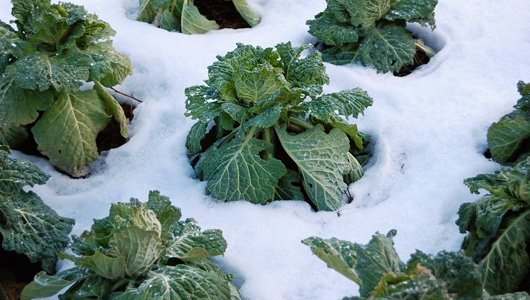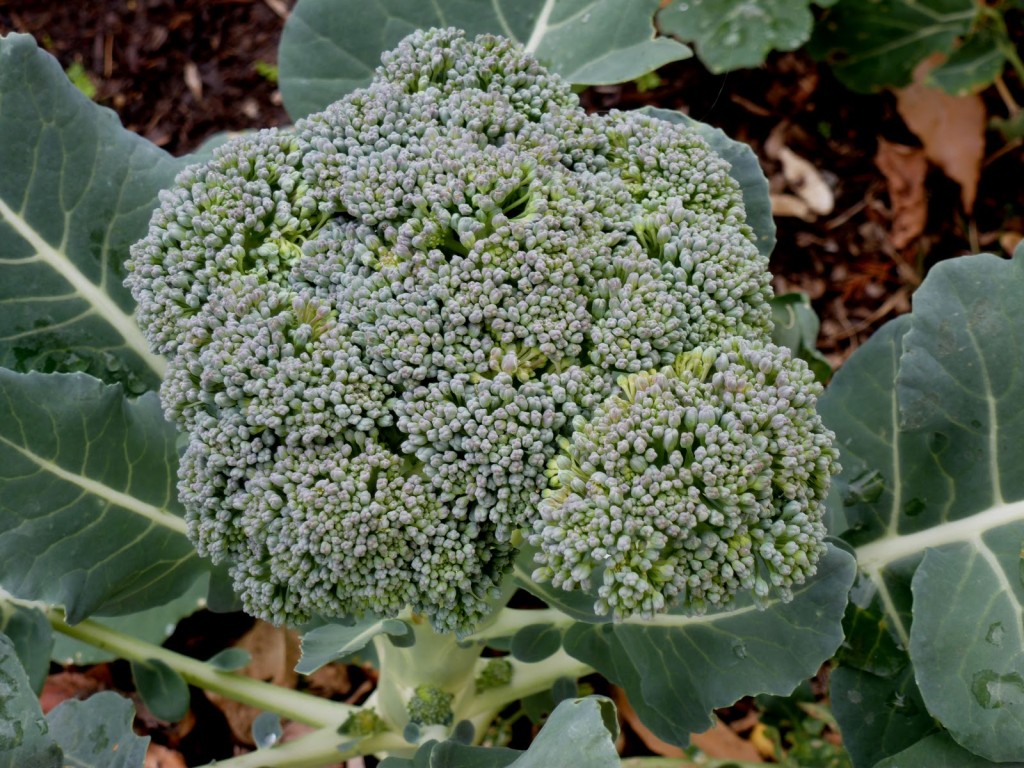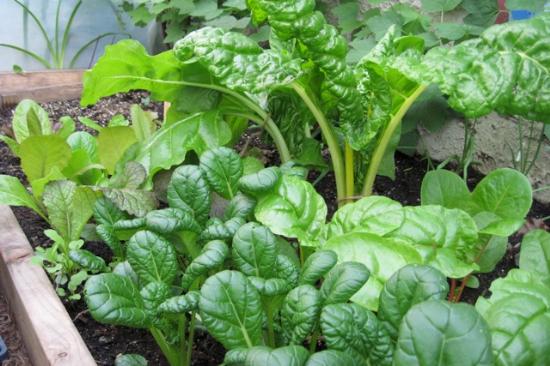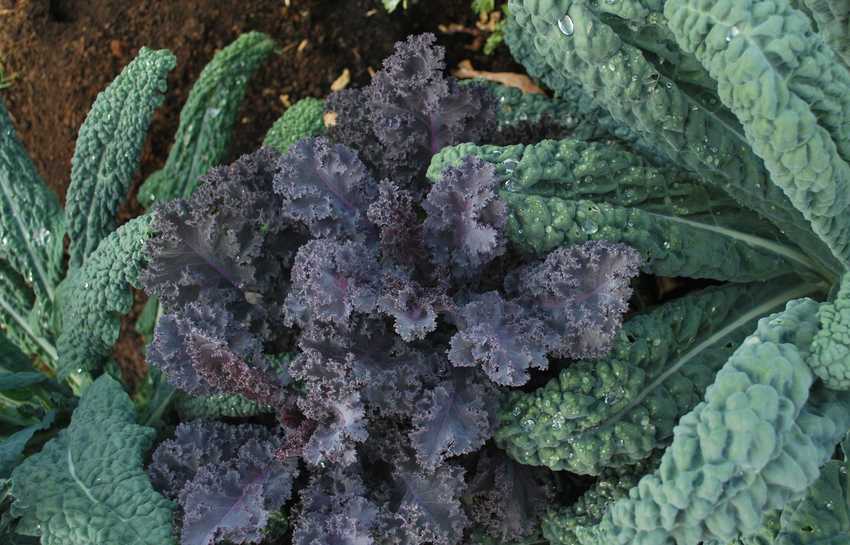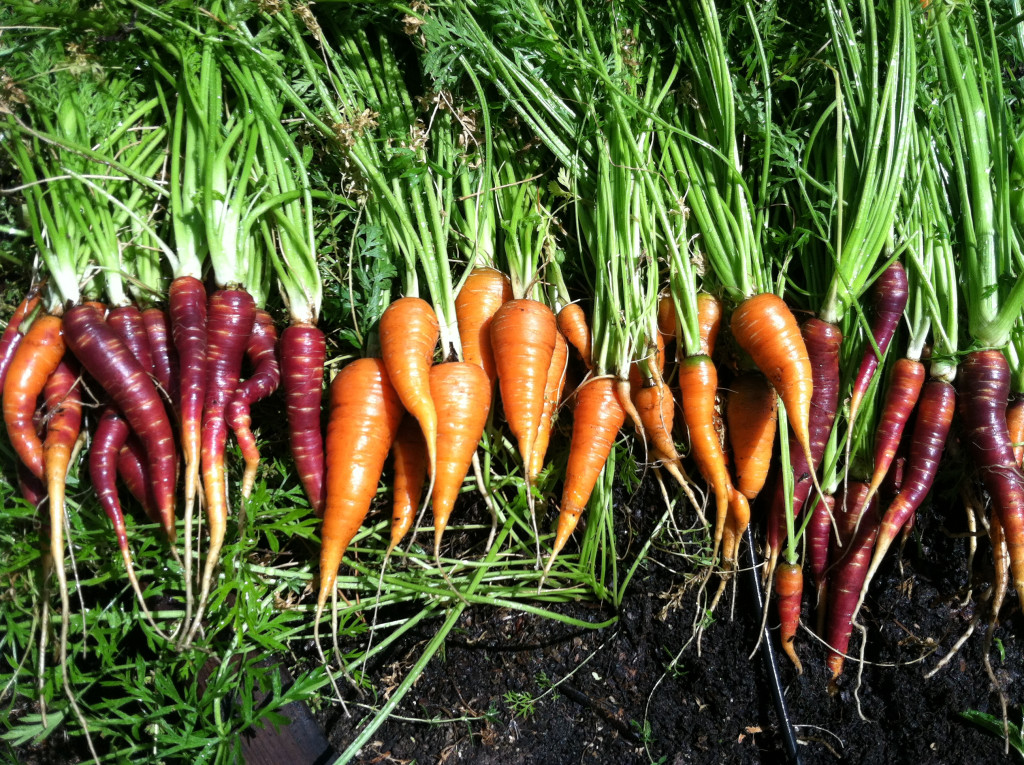Keep Growing Crops All Winter Long
Did you know that the sun produces enough energy in all parts of the United States to promote year-long growing? This means that you don’t have to stop growing and harvesting vegetable crops once temperatures drop below freezing. All it takes is some modification to how you garden and what you plant, and you can be bringing in a consistent harvest of some nutritious and hearty vegetables even in the dead of winter.
Obviously, what you can grow will depend on your local climate, and you will need to adapt if the soil freezes during the cold weather months. However, it’s easy to install a greenhouse, hut or even treat soil with a layer of Reemay, or a special material that insulates the surrounding ground. The trick is to pick the right crops, optimize your garden and be flexible. Let’s take a look at a few hardy crops that can resist much of what winter can throw at them.
Broccoli
Broccoli is a cool weather crop to begin with, but you can easily extend their grow life through the dead of winter if temperatures are regulated. This is an ideal greenhouse crop, and you can plant seeds in the fall and expect a winter harvest.
Spinach
Spinach is a rugged and durable crop that can thrive under varying climate conditions. They also grow fast and require minimal care and upkeep. You can even plant spinach in a traditional garden in the late summer, and it can survive a pretty harsh winter before flourishing once again in the spring.
Leafy Veggies
Dark, leafy vegetables can be grown in greenhouses or treated surface gardens in temperatures as low as 50 degrees. They also grow pretty fast, which means that you can time planting and harvesting to produce a year-long supply. They are also very nutritious, and provide the body with an abundance of minerals that can boost the immune system and cleanse cells.
Carrots and Turnips
Carrots can be grown year-round if they are in a heated greenhouse or garden covered with Reemay. Crops can be planted as late as November as long as temperatures are regulated. However, carrots will grow more slowly during the cool weather months as the intensity of the sun diminishes. However, small carrots are just as good as big ones, and this makes a fantastic and healthy crop to have coming in during the off-season. Turnips are another hearty and healthy root vegetable that can also thrive during the winter as long as the soil doesn’t freeze.
These are just a few examples of many vegetables that can be planted in the fall and harvested during the winter. There are also numerous seeds that are engineered for cold weather months that you can plant as well. However, always keep in mind that plants require warm soil and energy from the sun to grow and thrive, so your overall success will largely depend on how well you can regulate temperatures and sun exposure.
Finally, keep in mind that plants will not flourish to the degree that you are accustomed during traditional growing times as well. This means that uniformity, large crops and abundant harvests will be lacking in the winter. However, for a personal or family garden, this shouldn’t be much of an issue since looks are not as important as they are in the grocery store.
Plan ahead, make some modifications and see how well your green thumb will prosper even when the regular growing season is long gone. There’s nothing like having a year-round supply of veggies to boost self-sufficiency, and a winter garden is more productive and easier to manage than you may think.
